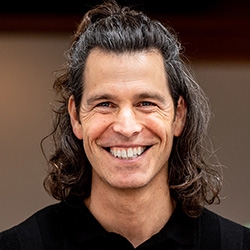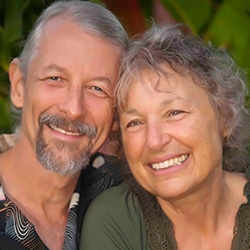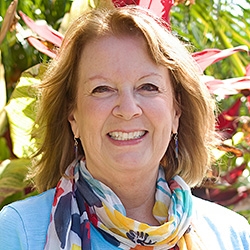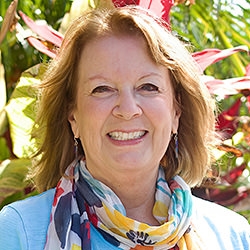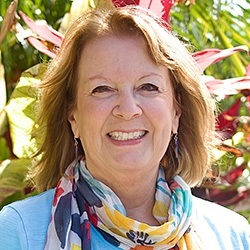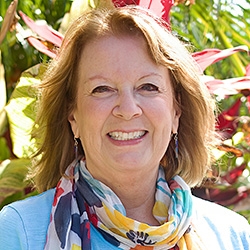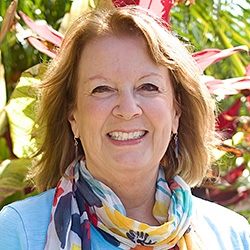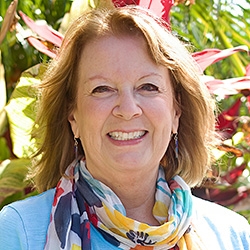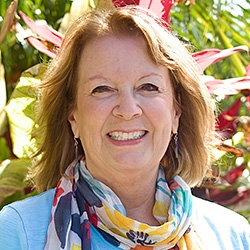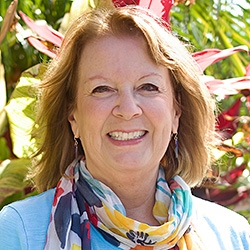

Search Results: expression
-
Yoram Mosenzon discusses judgmental dialogue and its hidden aim to meet needs. This often creates distance instead of fostering connection. Yoram introduces a self-connection exercise to improve the chances of dialogue becoming more enriching and life-serving.
-
CNVC Certified Trainer Miki Kashtan offers 3 steps we can take to access and express our deepest authentic expression.
-
Jim and Jori Manske explore the considerations of expressing ourselves honestly, considerations that lead to more fully conscious and nonviolent connections.
-
Distinguishing between needs and strategies to meet needs is crucial for solving conflict. For example, the need for peace can be met through various strategies beyond solitude or gratitude. Similarly, sex is a strategy. Sexual expression is the need behind it, and can be met in various ways to meet that need without having sex itself. Such flexibility can foster creativity and deeper connection, enhancing relationships.
-
Trainer Tip: Q: How do we get the love we want? A: Ask for it.
-
Trainer Tip: When we express frustration without blaming others and by clarifying our own needs and requests, we diminish the possibility of hurt feelings and separation in our relationships. So next time you feel very agitated or angry, rather than implying the other person is wrong or at fault, try the following: own your feelings, make a specific request, and rather than implying they need to give up their needs focus on your needs.
-
Trainer tip: When you want to thank someone expressing what that person did, how you felt about and what needs were met for you, can provide the other person with more information. It can also help her more fully understand how she contributed to you, and deepen your connection with her.
-
Trainer tip: The phrase “tragic expressions of unmet needs” is used to convey how often we do things that aren’t likely to meet our needs. It’s not bad, it’s tragic -- because it won’t help us meet our needs. Acknowledging this, we can then consider a different approach that's more likely to lead to satisfying results. Read on for three examples of where this may apply in your life.
-
Trainer Tip: When we express appreciation using words like "good", "great" or anything else evaluative, it conveys we are in the position to judge, and that we've judged them or their actions. Instead, to express appreciation without judgment state what they did, how you feel about what they did, and which of your needs are met by their behavior. Such an expression of appreciation clearly states how your life was enriched, without judgement.
-
CNVC Certified Trainer Miki Kashtan discusses how focusing on connection and care can guide us in expressing honestly and offering empathy.
-
Raj Gil offers tools and dialogue to help you respond to anger with awareness & care in the moment.
-
What do you do when you are thinking that it's not "emotionally safe" to speak honestly? Join CNVC Certified Trainer Arnina Kashtan as she explores this topic with a workshop participant.
-
Trainer Tip: Be aware of opportunities to be honest holding the intention to connect with people. If you do this with the elements of brevity, directness, and respect, you can increase your chances of being heard. If they don't like your honesty, consider switching to empathizing with them by listening to their feelings and needs.
-
Exploring how to share NVC in a school environment where others may not yet understand its value.
-
The more we can stay present with our hurt, and own our interpretations, we are more likely to express what's important to us without blame and also to become resilient. From there, the listener can have more space to offer their full presence and empathy. Read on for more.
-
Trainer tip: Feelings of hurt, anger, fear, and resentment can often sound alike. Fear and excitement have the same physiological effects on us, and are often expressed in the same body language. Clearly and specifically naming our emotions and the intensity level can help us resolve conflicts, with a much greater opportunity to get our needs met.
-
Does unworthiness keep you from expressing vulnerably and honestly? Afraid of being "found out?" Join CNVC Certified Trainer Arnina Kashtan as she explores this topic with a workshop participant to discern stories from needs, recognize the tension between self-acceptance and personal development and sit with the discomfort of self-acceptance.
-
-
Trainer Tip: To reduce defensiveness and hurt feelings when talking to your partner about your sexual needs that haven't been met, keep the conversation focused on your needs, not her lack of skill, and make a very specific request. From there, you can both explore any shared needs, blocks, or support needed to bring you both closer to your needs.
-
How we deal with “no” is a litmus test of our state of consciousness around power. Listen as John works with participants as they learn to give and receive a "no" from a consciousness of interpersonal connection.
Quick Links

Stay in Touch!
We value your privacy, won't share your email address and you can easily unsubscribe any time.

